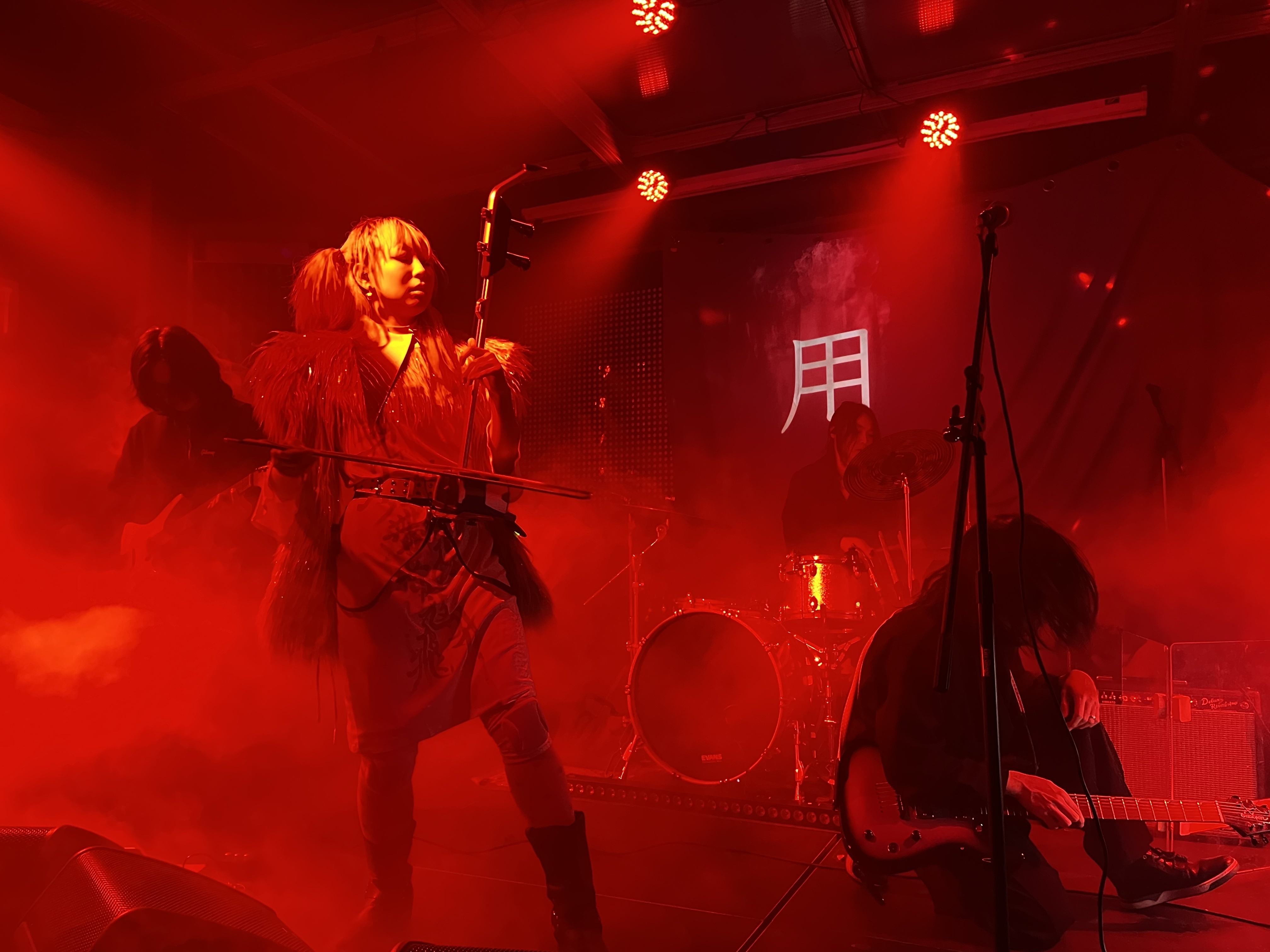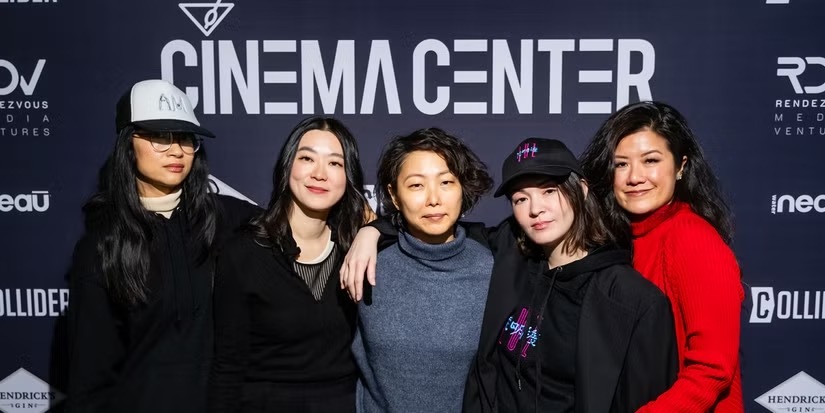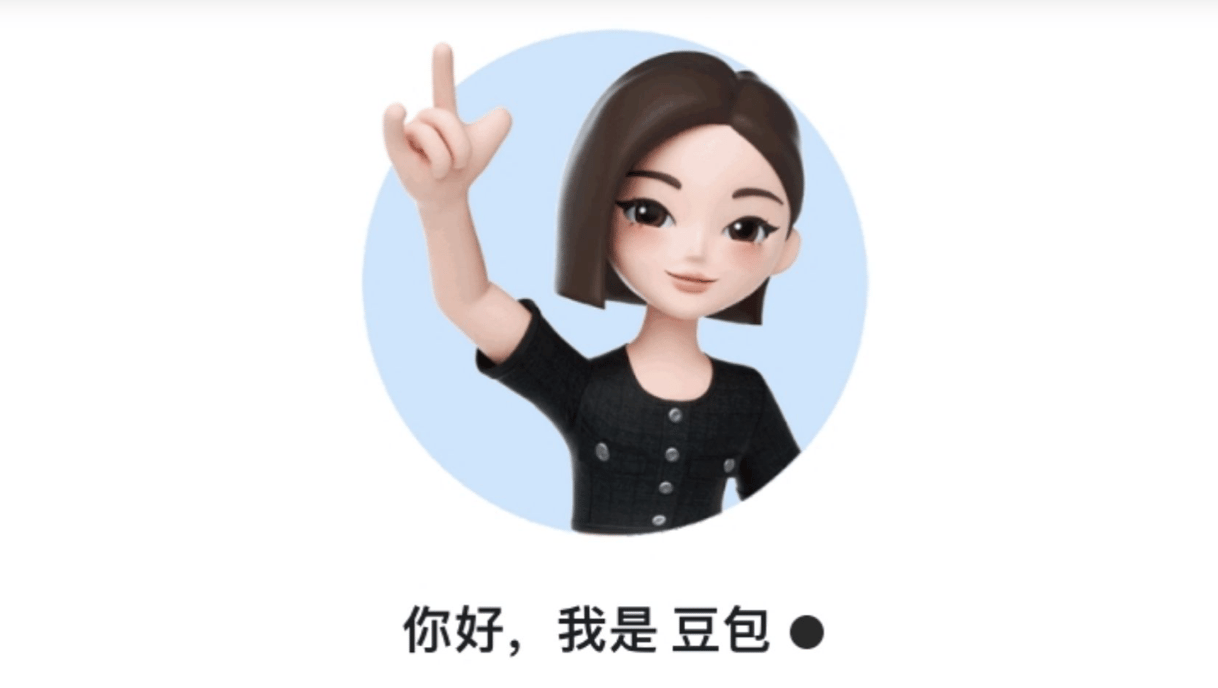Shanghai-based multidisciplinary artist Oscar Wang has been making waves in the fashion industry for some time and has inspired top brands, such as Fendi and Stella McCartney, to push their boundaries with artful IP concepts. Now he’s collaborating with none other than Daniel Arsham to create a series of collectibles that bridges cultural divides between East and West. Wang’s abilities go beyond identifying what’s cool; he’s also a master at bringing his unique creative visions to life and captivating audiences across the spectrum.
Mix a dash of nonchalance with some quirkiness and a healthy dose of confidence. Then add a generous amount of creativity and a touch of rebelliousness. There you have it: the formula for ultimate coolness. Or so it seems when chatting with Oscar Wang for five minutes. But when the conversation lasts for about an hour, you realize there is so much more to the artist and his growing global appeal.
Growing up in the Shadows of Show Business
Wang is the ultimate trendsetter and has been a keen observer of the world since a young age. Born in Hong Kong in 1990, he grew up surrounded by creative types as he accompanied his mom, iconic Taiwanese actress Sylvia Chang, behind-the-scenes in the city’s film industry.
“In those days, Hong Kong’s film industry was at its peak, or perhaps just edging towards it. It was a golden age for set designs, cinematography, talented actors, and wonderful narratives. I was fortunate enough to meet everyone as a boy. They were all my ‘uncles’ and ‘aunties,’” he says.

Wang always felt at home among artists, and he quickly understood that art is a boundless form of expression that can transcend any limits. And there was also the art of doing business, which he learned from his father’s side of the family.
“My dad was more low-key, a business guy. My grandmother was a savvy businesswoman in her own right, an amazing investor. I observed how they talked about businesses and negotiations. It was an art form in itself.”
Yearning for Order, Stepping Into the Unknown
Wang experimented with creating art as a boy and then as a teenager, from drawing video game covers to making actual sculptures. He could have pursued a fine arts course in university, but when the time came to choose, he headed to the Chelsea College of Art in London to pursue a degree in interior spatial design.
Why did he choose this course specifically? “Honest answer?” he asks, raising his eyebrows. “I was having too much fun before that, but I didn’t want to mess up school. Interior was something that made my life a lot more structured at that time.”
Besides presenting a proper framework for his creativity, the course allowed him to explore new ideas for how people play and interact with spaces. But it was also somewhat boundless, and Wang could create works across various media, from film to open-air 3D totems.
“It was all good practice for my mind to come up with these concepts that people don’t instantly think of. That’s when I began to train my brain to think of things from a different angle and present them in different shapes and forms within a given space,” Wang says.

The Chelsea College of Art in London, where Oscar Wang attended school. Image via Wikimedia
He gave it his all and went beyond by seeking real-life experiences he could leverage for extra learning during and after his years in London.
“I’m a firm believer that you have to go out there and work for other people, so I did a lot of internships and worked on projects from fashion retail to F&B and hospitality,” he says.
Wang also took on roles outside of the arts and design space, including working as a salesperson at a streetwear store and a bellboy at Grand Hyatt Hong Kong. These positions still lent him insight into his craft: “As a bellboy, you just open doors all day and handle suitcases for people. But you know what? You can tell a lot from how a person walks through the door.”
With all these experiences, he could analyze things from a design perspective, including noticing how people interact with spaces and objects.
“I started picking up on different things and noticing how certain things are actually cool, but people sometimes find it difficult to put their finger on it. With time, I became that guy that everyone’s like, ‘oh, he knows what the cool stuff is.’”
Open Work & Collaborations
Back in Asia, Wang chose Shanghai as a base and started Open Work, a creative studio to breathe life into his wildest ideas with the help of a small team of similar-minded talent.
He’s the creative spearhead of everything, telling RADII, “It’s hard to explain, but I can see these things in my mind, and then I rush to draw — even if in really ugly sketches — or describe what I see to my team so we can fine-tune all of these ideas together.”
It’s precisely the epiphany moment when the mumbo jumbo of ideas becomes something substantial that Wang enjoys the most.
“The moment when everything clicks and the concept hits you, that’s when you get really excited about things,” he says.

Oscar Wang’s reimagining of Fendi’s Peekaboo bag at Design Miami in 2018
One of Wang’s most impressive team-ups is with the Italian fashion house Fendi. It started when the brand asked him to rethink its Peekaboo bag to celebrate the 10th anniversary of the product and present his version at Design Miami in 2018. Wang’s interpretation had an outer cage made of flexible resin, and the bag itself, which is removable, was made from canvas and painted over by him.

Fendidi and family in a promotional image for Chinese New Year
Then, in 2019, he created an original IP character for Fendi: a giant panda covered in the FF monogram, Fendidi — didi means ‘little brother’ in Chinese. The mascot exists both digitally and physically, and this latest holiday season, we also met Fendidi’s family members, Fendiva, Fendino, and Fendina.
The campaign aims to create brand experiences and engage a younger audience through interactive digital games and offline events.
“I interact with all forms of media and always try to break the molds and push the boundaries,” Wang says. “That’s to give new audiences a chance to enter a new world they have never heard of.”
Here, a timeless, heritage brand is presented to a whole new and digitally native cohort of consumers.
It’s not the first time Wang and his team have created IPs for high-profile brands. They also collaborated with Stella McCartney to create characters based on endangered species: Red, a red panda; Jim, a golden monkey; and Bai, a polar bear.
Creative Sparks
With the help of technology, Wang often embeds his collaborations with a whimsical touch, which he defines as being “almost like a parallel universe.”
These universes he creates relate to things he observes in the real world, perhaps an object that he can enlarge limitlessly or a color tone he’ll emphasize, but they also stem from his subconscious.
“I also thought that if I could maneuver my own dreams and act in a certain way in them, it could be impactful in life because I could come up with newer concepts. This is almost like me not wanting to waste any time,” he laughs. “When I’m sleeping, I can still pick up on some imagery and have my rest at the same time. It’s just more practical.”
He also draws inspiration from various sources in the pop world of now, surveying current trends, fashion, visual arts, music, and the way technology keeps changing the game, making us evolve and “devolve,” as he puts it.
“Social media is taking over a lot of time because it’s right by your side at all times. I sometimes look at how people act in a nightclub, like what app are they using? It’s weird to play on your phone at a club anyway, but I try to see why it’s becoming the norm. What are they using it for?”
When it comes to the recent surge of fascination with A.I., Wang says: “I’m very open to things, so of course, I tried some of these new creative methods. A.I. is an incredible tool, and it will take over many people’s jobs, but what people don’t pick up, especially in the creative industries, is that it’s still terrible at projecting things through warmth, as we humans do, especially when we converse with each other.”
OW x Daniel Arsham

Speaking of conversations, Wang has recently showcased the result of his collaboration with American artist Daniel Arsham at Design Miami/ Podium in Shanghai: the ‘Dōngxī Teapot,’ crafted from rare Minguo green clay and adorned with a grid-like silver pattern to represent a “blueprint.” This is the first item in their East West Project of limited-edition collectibles.
Together, Wang and Arsham aim to transcend outdated cultural divides by combining traditional craftsmanship and contemporary aesthetics.
The collaboration involves a play with words, symbols, and meanings that cut across cultural boundaries. The concept for the first item arose during an online chat — Wang in Shanghai; Arsham in New York — as they brainstormed an object most people could relate to.
“It was an East meets West concept, and it took inspiration from traditional Chinese culture. I thought with dong meaning ‘East’ and xi meaning ‘West’ and dongxi meaning ‘object’ in Chinese, it would be cool to create something around which people could have conversations. That’s why it made sense to kick off this collaboration with a teapot. Tea is something traditionally Asian, but it’s also something known in cultures worldwide,” Wang explains before adding that tea is also multi-generational.
“Tea is not something too distant from anyone. People can vibe with it, but it means different things to different people. For some, it’s bubble tea or boba, while for others, it’s English breakfast. Also, the way we make tea today is very different from how our parents used to make it.”
To present the ‘Dōngxī Teapot’ to the world, Wang and his design team put together a futuristic tea house where a tea master performed a live tea ceremony using the teapot. The demonstration happened to the sound of thematic background music that was specially commissioned for the event and based on C Major, a central note in both Western and Eastern music.
“Many intriguing aspects of Chinese culture have existed for centuries, and they just need a fresh, modern approach to appeal to new generations, and tea is one of them.”
Sharing Good Vibes
It’s this new wave of consumers, the so-called Gen Z, that Wang is most excited about. He wants to explore what is happening now regarding culture to the fullest extent possible.

“Youth culture is almost the driving force of our world,” he says with a sparkle in his eye. “This next tribe of the human race is quite complex. They absorb information and knowledge a lot more openly and quickly, and they have very sophisticated ways of conversing with you.
“At the same time, it can be a challenge for them to consume the right information. The narrative can sometimes be gray or even scary. That’s why whatever I do, I will try my best to spread good ideas and philosophies. I want to feed them the good stuff and keep the positive energy flowing.”
Unless otherwise stated, all images via Oscar Wang































